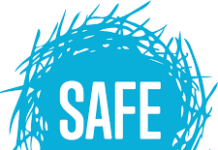For the second year of the zombie apocalypse, covid cast a long shadow over everything, the referendum left us in a hazy brain fog and the government wished cannabis would just go away – while the rest of the world moved on without us. Yet there is still hope.
Government shackles itself
The result of New Zealand’s cannabis referendum, held just over 12 months ago, was so close. So close! It was a one-in-a-generation opportunity, and in hindsight there are many things the Yes campaign could have done better.
Nevertheless, thousands of people gathered at J Day this year to show their continued support for changing our cannabis laws, to end criminal penalties for use and possession by adults in their own home, removing obstacles to safe and affordable access to medicinal cannabis, and giving Police better things to do than chasing people who choose cannabis. It was a day heavy with introspection and “what ifs”.
But much of the responsibility for the result must be sheeted home to the Government, who: chose to run referendum in the first place – meaning the lifestyle of a minority would be subject to the tyranny of the majority – even though legalisation then had less than 30% support in polls; who then issued a complicated 154-page Bill that no one (aside from pointy-headed policy wonks) was ever going to read; who failed to run a promised public education campaign; who did nothing to prevent disinformation from Nopers; who allowed the Electoral Commission to advertise the referendum as a vote “on cannabis” rather than how it should be controlled; and whose leader decided to keep their own vote private even though an endorsement could have been all that was needed to get over the line.
These things need to be said not because I enjoy regurgitating the past but because despite their actions (or lack of) and despite almost half of all voters supporting full commercial legalisation, Labour has managed to bind itself into doing nothing. Well, almost nothing.
They claim to be respecting the result, but no one should be under any illusions that had the shoe been on the other foot, that the cannabis legalisation bill would have gone through unchanged. Of course it would have been watered down, to account for the concerns of Nopers. So, prohibition must also be tempered to account for the concerns of half the population who voted Yes.
And carrying the torch of freedom for the forgotten 48% shouldn’t be left to just Green MP Chloe Swarbrick.
Police discretion did not work
Labour campaigned at the 2017 election, when in opposition, to implement the recommendations of the Law Commission. Back in 2011 – ten years ago! – they had called for the total repeal of the Misuse of Drugs Act 1975 and replacing it with a new law fit for purpose, in which low risk drugs such as cannabis would be decriminalised and regulated. Police should be made to give warnings, and not rely on their discretion which can be discriminatory, they said.
Labour has instead made police discretion their main reform. This has led to a drop in overall arrests but a worsening inequity as police use their discretion to further target Māori and other people they don’t like. Arrest rates vary widely, based on location, ethnicity and age. Simply put, this reform favours the middle classes and those who don’t look like cannabis users. Sometimes the discretion isn’t applied even to medicinal userssuffering debilitating conditions. Police have continued to prosecute those who provide illicit medicinal cannabis to patients.
To their credit, Police did exercise discretion in at least one meaningful, significant way: they decided to can their annual helicopter-based cannabis eradication programme, without even informing the Government they had done so. The programme came at huge cost, both financially and for the dangers it created. Well done, coppers!
Substance checking saves lives
It saves lives, but this also favours the middle classes. Substance checking was made legal in 2020 but only on a temporary basis. It is now permanently legal, making Aotearoa the first country to do so.
Full credit to the government for committing to this, which is long overdue. It really is the most significant thing to happen in harm reduction since New Zealand began needle exchanges in the 1980’s. Great stuff.
But it has taken 34 years – THIRTY-FOUR YEARS! – for Parliament to do something more to reduce harm to those who choose to take illicit drugs. And it is interesting they are willing to do this for Class A and B substances, mostly taken by middle class kids at festivals, while stalling reforms for cannabis.
The final bill, which passed only this month, was also a missed opportunity to properly reform s12 of the Misuse of Drugs Act. Back in 1975, it was intended to stop crack houses and opium dens. But it also impedes access to harm reduction services including pill testing. and prevents consumer-led non-profit private clubs from operating here (as they do in much of Europe).
In fact, Dakta Green – the pioneer of cannabis social clubs in New Zealand – is still being prosecuted by Police for running two cannabis clubs in Wellington. They had provided a safe space for over 700 members. In any sane world this prosecution should be dropped – but the Government’s discretion law only applies to use and possession (and not, for example, to Dakta’s ‘offence’ of using a premise, nor to cultivation, nor to baking cannabis cookies for elderly patients).
Driving Bill is now a lemon
Since last year’s election, the Government has taken over the drugged driving Land Transport bill. It has now gone from being based on impairment, set at a level consistent with the legal drink-drive limit (which earned it a “pretty good” review from me), to now being based – like Australia – on detection of tiny trace amounts. I think the Bill is now a lemon.
We all agree people should not drive if they are impaired for any reason. But there are many problems with the new approach, and it could see thousands of non-impaired drivers prosecuted. If Australia provides any lessons, it is that the burden of this would fall mostly on Māori and poorer people, while those who can afford to will simply use ride share services such as Uber.
To the Government’s credit, the Land Transport Bill was not pushed through in Parliament’s end-of-year final session. Perhaps they’ve become aware of the unintended consequences. I’m hopeful the driving Bill is getting a re-write over summer.
Medical cannabis scheme favours the rich
I used to be quite optimistic about the Medicinal Cannabis Scheme. But over the course of this year, it has become increasingly apparent that further reforms are needed if we want to ensure affordable access for all patients and enable a local industry which is widely inclusive and not the sole domain of rich investors and the landed gentry.
The legal cannabis industry is shaping up to be much like the supermarket trade, which is the subject of a Commerce Commission probe. A few large businesses are dominating market access, while small businesses miss out. It seems to take the backing of a billionaire or a stock market float to get enough resources to make it through the regulatory hoops officials have set.
One example is that New Zealand now has the world’s tightest specification for microbes in medicinal cannabis products. This is why overseas products tend to not qualify unless custom made for here. It’s a trade barrier put there to protect local producers, but it hurts patients who have a lack of products to choose from, and higher prices than would otherwise be the case.
This was compounded by Andrew Little’s decision to not extend the Medicinal Cannabis Scheme’s transition period. That saw around a dozen CBD products removed from local availability.
The good news is that flower is coming (formerly known as ‘bud’, cannabis flower is the majority of overseas markets, because it is what most patients prefer). The bad news is that it’s unlikely to be grown here.
In recent months several products have been announced by local companies, but all are made from imported cannabis grown elsewhere. Helius is using CBD oil produced in The Netherlands for their “New Zealand made” product. CannaSouth (NZX:CBD) is attempting to bring in Australian oil. NUBU imports irradiated cannabis flower from Australia.
Ruatoria-based Rua Biosciences (NZX:RUA) has given around 20 per cent of their company to former Air New Zealand CEO Rob Fyfe and the other founder of little-known Zalm Therapeutics in a $10 million deal which gives Rua the right to purchase cannabis grown in Australia by CANN Group.
If we are to truly enable a local industry, we need to unshackle patient demand together with continued regulatory reform to fix issues as they are identified. This has been the approach taken in Australia, which has seen unprecedented growth in approved patient numbers, hundreds of products listed as available there, and exports around the world including the likely dominance of the New Zealand market. We can do the same here, but we risk missing out if regulatory improvements are a distant mirage or a once-every-few-years exercise.
One-in-twenty New Zealanders already use cannabis medicinally. It’s a huge number, and over 95% are currently outside the law. To unshackle patient demand for legal products we need to put their experiences at the heart of the prescription process.
Official misinformation
Information currently provided to doctors is out of date. It doesn’t even cover the new scheme, two years after it came into effect. A new updated version has been drafted by BPAC and the Ministry of Health, but this ignores the lived experience of patients and carries over a basic maths error from the 2017 version.
This official guide given to doctors claims that a lethal dose of cannabinoids is just 4 grams – which is less than two bottles of Tilray, or less than one prescription of Sativex – so no wonder many doctors have felt reluctant prescribing cannabis products. This prescription could kill you! they thought. But it’s wrong.
The erroneous calculation features prominently on page 8 of BPAC’s prescribing guide under a section titled The potential risks of medicinal cannabis use: “The median lethal dose of THC in animal models ranges from 800–9,000 mg/kg, and theoretical estimates for a 70 kg human suggest they would have to ingest approximately 4 g of THC”.
This maths is out by a lot. Like, a lot. Turns out 800mg x 70kg is 56 grams of pure THC, or 9000mg x 70kg = 630 grams of pure THC. That’s quite different to just 4 grams in the published, apparently peer-reviewed, guide provided to all doctors since 2017. They’ve been telling your doctor that those 4 grams in that prescription you want could kill you – and they’re still planning to keep telling them this error in the new version, despite no one having ever died from a cannabis overdose in recorded history, and simply plugging 800mg x 70 into google will give you the correct answer.
Please tell me some good news
Bloody hell, there must be some positive news, right?
Hemp is shining bright and leading the cannabis industry here. 2021 saw more planted acres that ever before. Warm eco-friendly hemp homes have been built and are being enjoyed right now. Locally made hemp food products are now exported around the world. Hemp is now overseen by MPI not Ministry of Health.
There were more research papers about cannabis published so far in 2021 than any other year. Some research showed cannabinoids show promise against Covid19.
On the international stage, Malta and Luxembourg raced to become Europe’s first country to legalise home growing (Malta won). The new German coalition government has agreed to fully legalise cannabis for adult use – showing how it can be done, by just doing it!
In 2021, five additional US states — Connecticut, New Jersey, New Mexico, New York, and Virginia — legalised cannabis for adult use. That means that an additional 42 million Americans were liberated from the oppressive and failed policy of marijuana prohibition. State lawmakers also took steps to ensure justice for individuals with prior cannabis convictions. California, Illinois, New York, Virginia, and elsewhere moved to either seal or expunge the convictions of around 2.2 million people who formerly faced the lifelong stigma of a cannabis criminal record.
At the federal level, there is greater momentum than ever before with duelling Democratic and Republican-led efforts – such as The MORE Act, the Cannabis Administration, and Opportunity Act, and the newly introduced States Reform Act — leading the debate around repealing US federal cannabis prohibition, which will in turn help global efforts including here in New Zealand.
What can we expect in 2022?
The drugged driving bill will be back. Will it be equitably based on a similar level of impairment as the legal drink driving limit, or will they use a driving law to try to catch pot smokers like they do in Australia?
The attempt to decriminalise use and possession though police discretion is to be reviewed. This is our opportunity to push for mandatory warnings, and full comprehensive decriminalisation. This means police would be mandated to warn people rather than arrest them. Full decriminalisation means adults could use, possess, grow, and share cannabis with no penalties, within certain rules (such as age limits, non-smoking areas, where growing can occur, etc). Previous convictions would be expunged. The offence of ‘using premises’ would be repealed, as such use would no longer be an offence. Presumptions of supply would also be removed. It all sounds pretty reasonable to me!
The Medicinal Cannabis Scheme regulations are also due to be reviewed in 2022, as they will have been in effect for two years. If the pace of change seems slow, or if you have views about affordability and access, or equitably participation as a provider – or a positive compliment to give – this will be your chance to make your views known. Start by letting friends and whanau know.
After a year of introspection – and for many a well-earned break – the reform movement needs to decide what it is doing: do we lobby existing MPs for a private member’s bill? Convince the Government to do the right thing? Actively support reformist candidates at the next general election? Hope for a Green-Labour Government that would make it legal? Or do we prepare to run a Citizen’s Initiated Referendum in 2023?
Despite the slender majority for No at last year’s cannabis referendum, cannabis is not going away. People who choose cannabis over other substances should not be prosecuted or persecuted and instead deserve the protection of the law.
The current law now offers opportunities to push for a defined Police policy of tolerance or non-enforcement in certain circumstances, potentially including cannabis social clubs done in a thoughtful manner. We’re all sick of talking about it, isn’t it time we just got on with it?





There’s the best kind of repression in Nu Zillind.
It’s that kind which represses we, the people, in such a way that we never quite realise it. We’re a repressed people on a rich few islands and we spend our lives churning out wealth for others who, in turn, repress us to make that kind of polite slavery an enduring cultural signature.
No wonder, then, that Pot’s still illegal to possess and smoke/eat. Can’t be having the hoi polloi suddenly realising they’re being exploited once shown an alternative narrative by a plant that’s known for helping to show new and abstract ways of thinking.
Aye boys?
30 years I’ve fought for medical cannabis and this is the utterly useless system we got. Heads should roll at the ministry of health, for the miss information and the increase in suffering the new law has produced.
Sativex is too expensive and only works for some conditions. There appears to be very little else in the works. The whole approach to CBD is woolie headed.
The bottom line is it’s not working, and it makes me think Andrew Little lied when he said he would stop the suffering. For a small group of wealthy cancer suffers there has been a slight improvement. But for the majority of the public nothing. Begs the question in my mind, who are this government representing on this issue, because it’s not all of us, it’s not even a majority.
If I were dictator I’d appoint you my cannabis Czar. Such a shame that referendum. Labour’s real motto is ‘Caution’, from the 2020 ‘Winter of Discontent’ on. They’re scared of their shadows but via this covid epidemic learning again about commanding for the people. But still puke-full of people who believe the rich should decide things.
My Gisborne region was one of the few rural areas to vote for legalisation. I thought immediately after the referendum the police would stop bothering about grass here in recognition of .. well … reality. But there’s an endless stream of new recruits sent up here to be trained ‘correto’.
2000 ‘Winter of Discontent’.
Thank you for the informative article, Chris. The referendum bullshit taste has not gone away yet.
People are angry about being lied to and that’s one of the reasons they won’t vote.
What governments haven’t figured out yet is that stoners are usually quite compliant and reasonable and would happily acquiesce to reasonable government mandates.
Anger comes from misunderstanding. Why can’t we, a country of huge riches and growing potential, have our own version of this company: https://www.tilray.com/home/#management
?
bit like the approach to vaping, we took a position and the bureaucrats will occupy that trench as long as they can…
personally I’d legalise and provide all drugs on prescription that would at least remove the gangs….but don’t try to tell me that pot is 100percent good in terms of mental and lung health cos in NZ WE ALL KNOW a terminally fucked up pothead….like may issues the aim should be harm reduction not the unattainable goal of eradication.
Those white collar criminals who call themselves politicians screwed it for us completely.
They had their shot and they blew it, its black market from now on and fuck the lot of them.
Never voting again.
This country/government is just cruel. Of course they will just take the punish the poor and get thier money approach. The poor are the only ones who can’t fight back. Dark times. These policies and laws are killing people and the system needs to be held accountable.
The Government has mostly neutered its self on issues where the country needed strong leadership. Our PM set the tone for this with her many inept colleagues in the mistaken belief that taking the lead would interfere with the democratic process.
She sat there and did absolutely nothing while vested interest groups corrupted the referendum with a costly misinformation and fearmongering campaign via our visual media. They played right into the hands of the many people out there that have incorrect, outdated and damaging perspectives on cannabis. They were shown in dramatic fashion that NZ would have tens of thousands of young people out and about on our roads, in our workplaces and communities that were drugged zombies. Those who voted no genuinely believed it would be irresponsible to vote yes in the referendum. I like most others witnessed the war being waged against cannabis and support for the yes vote fade. So much so it became inevitable prior to election day that the referendum would fail. Our democracy was hijacked and Ardern sat there and watched……and did absolutely nothing. She failed so many of us.
This sitting on the fence approach by Ardern is very deliberate and is exactly what’s not needed when the balance is being redressed. Ardern is so intent on respecting those that voted no that she lost sight of all those that voted yes.
Being stuck in no man’s land is very familiar and a hallmark of Ardern.
Another generation of young Kiwis are waiting to leave NZ at their first opportunity. All they want is to own their own home but the very person who spouted she would help them is the exact same person ensuring the status quo remains which of course involves obscene inequity. House prices are out of control and out of reach for many. It’s way too late for tinkering around the edges but that’s all Ardern has deliberately done. She’s appeased home owners and their fears while masquerading as someone who gives a shit about the plight of first home buyers. It’s another betrayal of mostly young people.
Generational change has been about as authentic as a $2 Shop Rolex Watch…….may look or sound ok at first glance but under closer scrutiny is just cosmetic and worthless fluff.
Same deal with Covid and the vaccine. Ardern could have educated NZ and redressed the imbalance created by a misinformation war on Social Media. Instead, she did S.F.A. apart from just telling people to go and get vaccinated 9 million times. Now we have a country more divided than at any time since the 81 Springbok tour. Sometimes, sitting on the fence is the worst thing to do.
Disagree about the last paragraph but absolutely right about the 2000 ‘Winter of Discontent’ caution that has informed Labour decisions since then. No power, force, intelligence for the people — just a show of it. They cut away the strength of the Labour Movement from them in favour of professional activists at head office. I didn’t foresee Jacinda-mania but I did entirely foresee Jacinda-weakness. I’m sure the head office apparatchiks would criticise me for the first, which got’m into government after-all — the Liberal Party lasted a long time after Ballance (before the ‘party of the people’ won government)…
The last ‘leader’ for the people was ‘Big Norm’. As per the chap in Oz, Whitlam, at the same time.
indeed TM you know the old adage
‘if you stay in the middle of the road, you get hit by a fuckin big truck’
The pot poll was so close.
Every second person in NZ thinks it’s ok to smoke.
Its near enough 50/50 the gov should have have guts to legalise it make revenue, save the cost of policing and making criminals.
Keeping pot criminal is obviously bad – it puts Meth in the same bag..
The nz serf class have nothing except work to pay rent, Get a conviction for pot and may as well use meth too its cheaper. Way cheaper than tobacco.
Comments are closed.